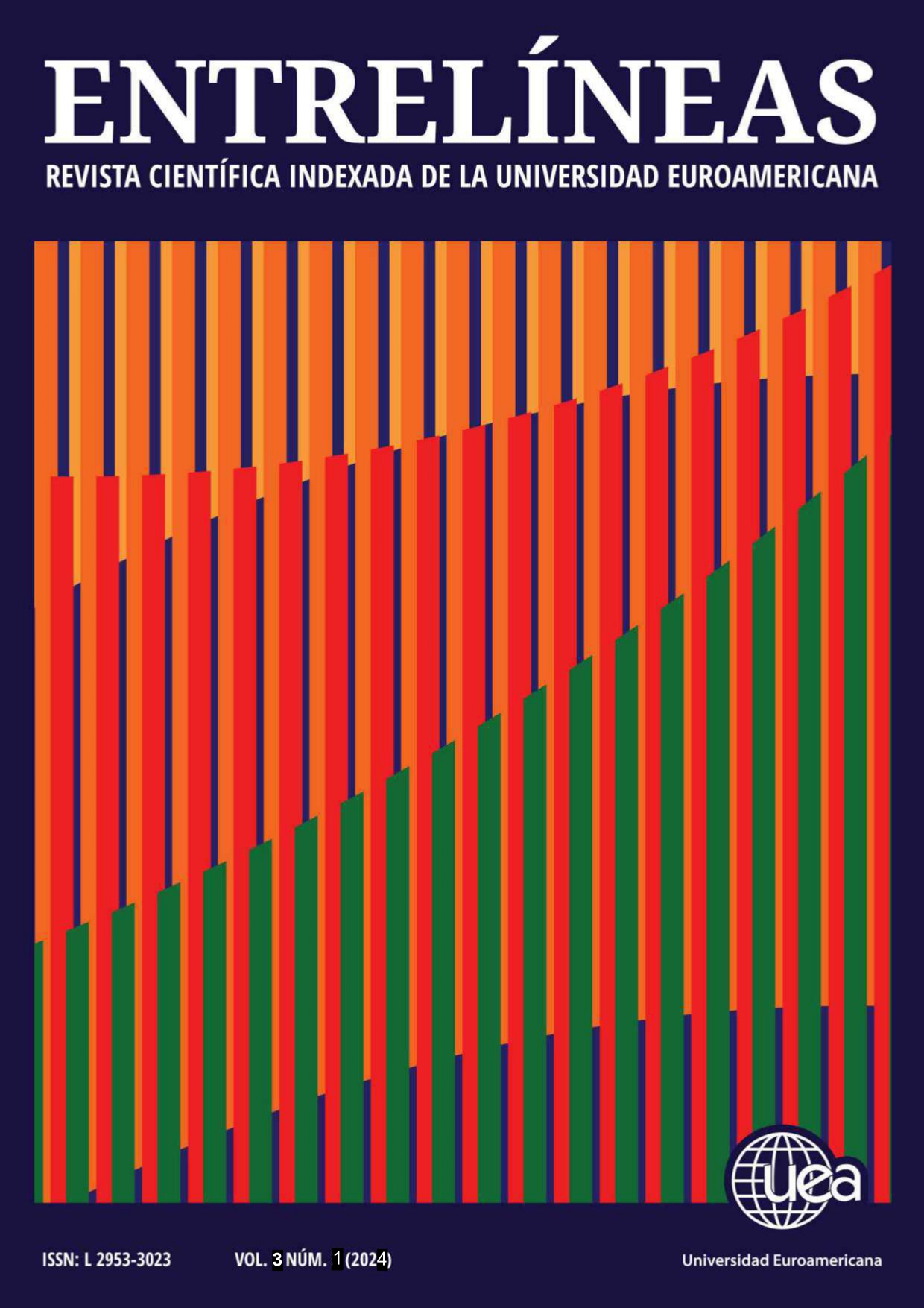Artificial intelligence and audits based on unstructured data
DOI:
https://doi.org/10.56368/Entrelineas312Keywords:
data analysis, financial audit, Big Data, accounting, Artificial IntelligenceAbstract
In accounting, auditing and finance, numerous documents are handled for which there is no methodology that allows the truly relevant data to be extracted. Currently, the use of artificial intelligence makes it possible to process unstructured data, the complexity of which to process and organize requires a considerable number of man-hours, slowing down the auditor's work. In recent years, terms such as Big Data, data analytics and artificial intelligence have emerged as key concepts in accounting. With the objective of describing the application of artificial intelligence in the analysis and processing of unstructured data for use in operational audits, a descriptive and documentary study was carried out, with a non-experimental design and a transversal perspective. The results demonstrated the treatment of unstructured data in the audit, specifying its classification and management, highlighting how Big Data influences the audit and how structured and unstructured data are transforming the traditional methods of the audit process. It is concluded that handling large volumes of unstructured data always poses security and privacy risks, which justifies the need to protect this data against unauthorized access. At the same time, the need for accountants and auditors to acquire new skills and technical knowledge to work with advanced artificial intelligence and data analysis tools is emphasized.Downloads
References
Adnan, K., & Akbar, R. (2019). An analytical study of information extraction from unstructured and multidimensional big data. Journal of Big Data, 6(1), 1-38. https://doi.org/10.1186/s40537-019-0254-8
Becker, J., Knackstedt, R. & Pöppelbuß, J. (2009). Developing Maturity Models for IT Management. Business & Information Systems Engineering, 1(3), 213–222. https://doi.org/10.1007/s12599-009-0044-5
Bose, S., Dey, S. K., & Bhattacharjee, S. (2023). Big data, data analytics and artificial intelligence in accounting: An overview. Handbook of big data research methods, 32-51. https://acortar.link/yuKfTn
Bridwater, A. (2018). The 13 Types Of Data. In Forbes. https://www.forbes.com/sites/adrianbridgwater/2018/07/05/the-13-types-of-data/
Chowdhury, E. K. (2021). Prospects and challenges of using artificial intelligence in the audit process. .The Essentials of Machine Learning in Finance and Accounting, 139-156. http://dx.doi.org/10.4324/9781003037903-8
De La Hoz Suárez, B. A., Manjarres Tete, A. E., De La Hoz Suárez, A. I. & Luna Morán, I. F. (2024). Inteligencia artificial como estrategia para gestionar los procesos de auditoría financiera. Revista Estrategia Organizacional, 13(1), 57-72. https://ideas.repec.org/a/col/000577/021148.html
Fisher, I. E., Garnsey, M. R., & Hughes, M. E. (2016). Natural language processing in accounting, auditing and finance: A synthesis of the literature with a roadmap for future research. Intelligent Systems in Accounting, Finance and Management, 23(3), 157-214. https://doi.org/10.1002/isaf.1386
Fukas, P., Rebstadt, J., Remark, F., & Thomas, O. (2021). Developing an Artificial Intelligence Maturity Model for Auditing. In ECIS, A Virtual AIS Conference, 1-18. https://acortar.link/1gNZKA
Fundación Latinoamericana de Auditores Internos. (2022). Perspectivas y percepciones globales. The Institute of Internal Auditors, Inc.
Gepp, A., Linnenluecke, M. K., O’Neill, T. J., & Smith, T. (2018). Big data techniques in auditing research and practice: Current trends and future opportunities. Journal of Accounting Literature, 40(1), 102-115. https://doi.org/10.1016/j.acclit.2017.05.003
Hasan, A. R. (2021). Artificial Intelligence (AI) in accounting & auditing: A Literature review. Open Journal of Business and Management, 10(1), 440-465. https://doi.org/10.4236/ojbm.2022.101026
Hevner, A.R., Ram, S. & March, S.T. (2004). Design Science in Information Systems Research. MIS Quarterly, 28(1)75-105. https://doi.org/10.2307/25148625
Hou, B., Zhang, Y., Shang, Y., Liang, X., Liu, T., & Su, J. (2020, October). Research on unstructured data processing technology in executing audit based on big data budget. In Journal of Physics: Conference Series, 1650(3), 032100. IOP Publishing. https://doi.org/10.1088/1742-6596/1650/3/032100
Michael, A., & Dixon, R. (2019). Audit data analytics of unregulated voluntary disclosures and auditing expectations gap. International Journal of Disclosure and Governance, 16(4), 188-205. https://doi.org/10.1057/s41310-019-00065-x
Montoya Hernández, A. Y. & Valencia Duque, F. J. (2020). Inteligencia artificial al servicio de la auditoría: una revisión sistemática de literatura. Revista Ibérica de Sistemas e Tecnologias de Informação, (E27), 213-226. https://www.proquest.com/openview/8a2868ccf43245be9a642a31d5454ca4/1?pq-origsite=gscholar&cbl=1006393
Nielsen, S. (2022). Management accounting and the concepts of exploratory data analysis and unsupervised machine learning: a literature study and future directions. Journal of Accounting & Organizational Change, 18(5), 811-853. https://doi.org/10.1108/JAOC-08-2020-0107
Omoteso, K. (2012). The application of artificial intelligence in auditing: Looking back to the future. Expert Systems with Applications, 39(9), 8490-8495. https://doi.org/10.1016/j.eswa.2012.01.098
Ortiz de Zárate Alcarazo, L. (2022). Explicabilidad (de la inteligencia artificial). Eunomía, Revista en Cultura de la Legalidad, 22, 328-344.
Salinas Rodríguez, S. I. (2023). Textarium: Un sistema de visualización de textos utilizando conocimiento libre y procesamiento de lenguaje natural. (Tesis de Ingeniería). Universidad de Chile.
Sheils, B. P. (2020). Investigación en la aplicación de técnicas de Inteligencia Artificial (IA) en la industria de la auditoría. Universidad Pontificia Comillas.
Sun, T., & Vasarhelyi, M. A. (2018). Embracing textual data analytics in auditing with deep learning. International Journal of Digital Accounting Research, 18, 49-67. https://doi.org/10.4192/1577-8517-v18_3
Török, R. M. (2022). Artificial intelligence algorithms applied in business and accounting. Timisoara Journal of Economics and Business, 15(1), 73-90. https://doi.org/10.2478/tjeb-2022-0005
Yang, M., Adomavicius, G., Burtch, G., & Ren, Y. (2018). Mind the gap: Accounting for measurement error and misclassification in variables generated via data mining. Information Systems Research, 29(1), 4-24.Yudowati, S., & Alamsyah, A. (2018). Big data framework for auditing process. International Journal of Engineering & Technology, 7(4.38), 908-911. https://doi.org/10.1287/isre.2017.0727
Žager, K., Dečman, N., & Rep, A. (2020). The impact of artificial intelligence on the accounting process. In 9th International Scientific Symposium Region, Entrepreneurship, Development 2020 (RED 2020) (1430-1444). https://www.researchgate.net/publication/342171038_The_Impact_of_Artificial_Intelligence_on_the_Accounting_Process
Downloads
Published
Issue
Section
License

This work is licensed under a Creative Commons Attribution-NonCommercial 4.0 International License.
You are free to:
- Share — copy and redistribute the material in any medium or format
- Adapt — remix, transform, and build upon the material
- The licensor cannot revoke these freedoms as long as you follow the license terms.
Under the following terms:
- Attribution — You must give appropriate credit , provide a link to the license, and indicate if changes were made . You may do so in any reasonable manner, but not in any way that suggests the licensor endorses you or your use.
- NonCommercial — You may not use the material for commercial purposes .
- No additional restrictions — You may not apply legal terms or technological measures that legally restrict others from doing anything the license permits.










